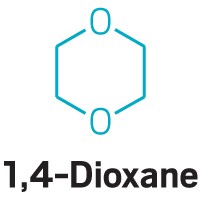Advertisement
Grab your lab coat. Let's get started
Welcome!
Welcome!
Create an account below to get 6 C&EN articles per month, receive newsletters and more - all free.
It seems this is your first time logging in online. Please enter the following information to continue.
As an ACS member you automatically get access to this site. All we need is few more details to create your reading experience.
Not you? Sign in with a different account.
Not you? Sign in with a different account.
ERROR 1
ERROR 1
ERROR 2
ERROR 2
ERROR 2
ERROR 2
ERROR 2
Password and Confirm password must match.
If you have an ACS member number, please enter it here so we can link this account to your membership. (optional)
ERROR 2
ACS values your privacy. By submitting your information, you are gaining access to C&EN and subscribing to our weekly newsletter. We use the information you provide to make your reading experience better, and we will never sell your data to third party members.
Consumer Products
Shortage of BIT, a key preservative, looms
Disruption of Chinese raw material supply poses a reformulation headache for paint makers and others
by Marc S. Reisch
September 9, 2018
| A version of this story appeared in
Volume 96, Issue 36

A shortage of a precursor almost exclusively sourced from China is threatening supplies of the widely used preservative benzisothiazolinone (BIT). Users of BIT face regulatory headaches and increased costs as they seek alternatives for the preservative, which prevents bacteria, yeast, and fungal growth in a host of consumer products, including paints, adhesives, and household cleaners.
Sounding the alert is the Household & Commercial Products Association (HCPA), a trade group, which recently sent an advisory telling members that a BIT precursor, o-nitrochlorobenzene, is in short supply because of Chinese government actions. BIT makers have already told customers they won’t be able to meet demand “in the very near term,” HCPA says. Producers of BIT include Dow Chemical and Lonza.
While other industry groups are complaining about the impact the current trade dispute between China and the U.S. could have on their businesses, HCPA points out that the BIT problem is “not directly related to the current tariff challenges.” Instead, Chinese o-nitrochlorobenzene plants have been ordered to close as part of an environmental crackdown, says Steve Bennett, HCPA’s senior vice president of scientific affairs.
The Chinese Ministry of Environmental Protection initiated what it calls “the battle for the blue sky” last year to cut back on water and air pollution. Government authorities have shuttered thousands of factories that make energy, raw materials, and finished products, according to industry reports. The initiative has also hit producers of pharmaceutical ingredients.
In an effort to free up Chinese BIT supplies, HCPA recently sent letters to the U.S. State Department and the Department of Commerce asking them to intercede with their Chinese counterparts.
In the meantime, BIT users will have to reformulate, Bennett says. Though BIT is not easy to replace, formulators will need to readjust their preservative blends to make sure their products “perform as expected,” he says.
HCPA is also “facilitating” discussions between BIT users and the U.S. Environmental Protection Agency, Bennett adds. The agency could receive thousands of reformulation requests in a short period of time, he warns.



Join the conversation
Contact the reporter
Submit a Letter to the Editor for publication
Engage with us on Twitter